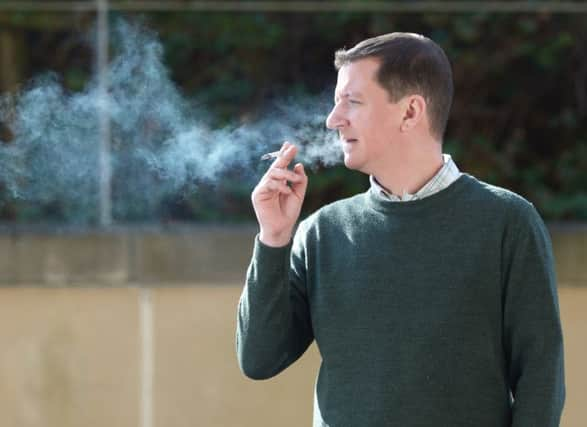'˜Guilty pleasures' like smoking cost thousands of pounds a year


Smokers and vapers spend almost £100 a month feeding their habit, while drinkers spend £69 in the pub, while Takeaway lovers invest £58 every month on food deliveries.
Meanwhile, fast food addicts spend a whopping £38 every month on their favourite indulgence and coffee fans spend over £30 a month, almost £400 a year.
Advertisement
Hide AdAdvertisement
Hide AdThe same report, which surveyed more than 2,000 people across the UK, found that people in Edinburgh have disposable income of £1,077 each on average, while Glaswegians have just £818 left after paying out for necessities such as rent or mortgage payments - the lowest of the 15 UK cities surveyed.
People in Liverpool had the highest amount left to spend, with an average of £1,401 burning a hole in their pockets, followed by followed by Londoners with £1,206.
Jane Morgan, business manager at Direct Line Life Insurance, said: “Everyone loves to unwind at the weekend with a few drinks and their favourite takeaway meal, but it’s important not to get caught up in the day to day and think about your long-term future too.
“It’s easy to say ‘I’ll think about that later’ or put it off for a rainy day, but it’s important to be prepared for your financial future, no matter what life may bring.”
The study found that men claim to have an average monthly disposable income of almost a third higher than women at £1,223, with women reporting to have over £300 less at just £916 to spend each month. Official figures published yesterday by the Scottish Government revealed that retail sales in Scotland grew by 0.5 per cent in the first quarter of this year.
However, research out earlier this year from accountancy firm PWC found that consumer spending growth is expected to slow from around 1.8 per cent in 2017 to around 1.1 per cent in 2018 as a whole as higher inflation squeezed households’s ability to spend.
Meanwhile, a second report from PWC, in partnership with the Local Data Company, found that 290 Scottish high street retail outlets closed their doors last year - at a rate of over five stores a week.
However, the study found that cafes, tearooms, restaurants and bars were among those showing the highest increase in net store numbers in 2017.